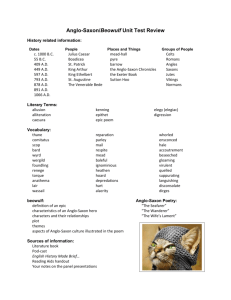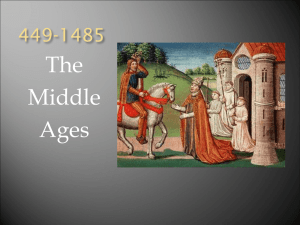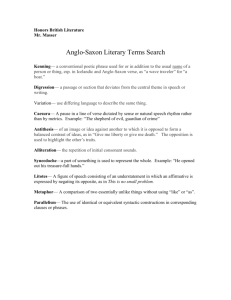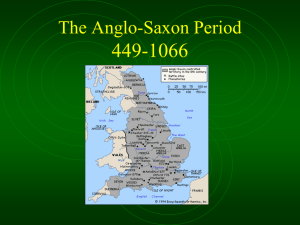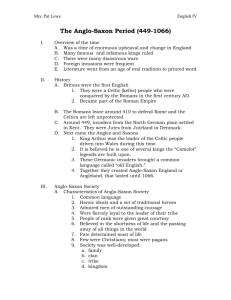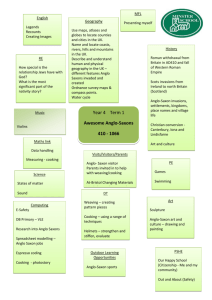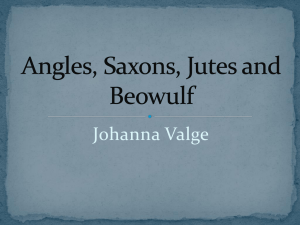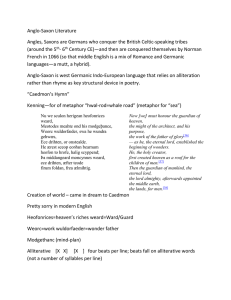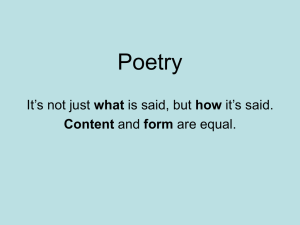Anglo-Saxon Chronicle
advertisement
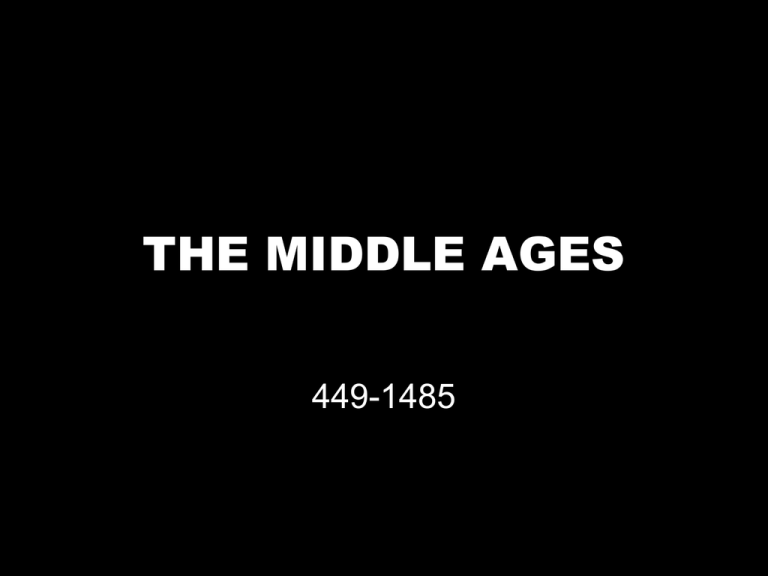
THE MIDDLE AGES 449-1485 THE MIDDLE AGES • The Anglo-Saxon Period – 449-1066 • The Medieval Period – 1066-1485 THE GERMANIC INVASIONS • Britons – Celtic People – Early inhabitants of Britain – Conquered by the Romans in the first century – In 410, Roman army called back to Rome • Britons raided and looted by neighbors on the Continent THE GERMANIC INVASIONS • The Jutes – Peninsula of Jutland in Denmark – First of many Germanic invaders – Settled in what is now the county of Kent THE GERMANIC INVASIONS • The Angles and the Saxons – Britons were no match for these invaders – Brought with them a common language THE GERMANIC INVASIONS • The Angles & the Saxons – Created the AngloSaxon England – Lasted until 1066 – The Normans, led by William, Duke of Normandy, conquered the country THE GERMANIC INVASIONS • Kingdoms of England – Kent – Northumbria – Mercia – Wessex THE GERMANIC INVASIONS • King Alfred of Wessex – Known as Alfred the Great – 871-899 – Led the Anglo-Saxons against the Vikings ANGLO-SAXON CIVILIZATION Commonalities • Common Language • Heroic ideal • Admired men of outstanding courage • High ranking people received with courtesy • Rulers generous to loyal • Fate ANGLO-SAXON CIVILIZATION Kingdom Tribe Clan Family Unit ANGLO-SAXON CIVILIZATION • Appreciation of beauty – More artistic than their Norman conquerors – Vigorous minds • Venerable Bede –Earliest English historian –Earliest important prose writer THE ESTABLISHMENT OF CHRISTIANITY • Missionaries from the continent helped to spread Christianity • Saint Augustine – Came in 597 – Established a monastery at Canterbury – Became the first Archbishop of Canterbury THE ESTABLISHMENT OF CHRISTIANITY • Abbess Hilda – Leader of a synod at Whitby Abbey in 664 • This synod united the English church with Roman Christianity ANGLO-SAXON LITERATURE • Anglo-Saxon Literature was an oral art – Poems were sung (harp) – The poet was the memory and historian of the tribe – Strong beat and alliteration ANGLO-SAXON LITERATURE • Heroic Tradition & Elegiac Tradition – Two most important traditions – Beowulf is the most important single poem – “Seafarer” is a good example of an elegiac lyric – Riddles were also common – Written in Latin (occasionally in English) VENERABLE BEDE • 673-735 • Greatest prose writer of the time • Most learned and industrious writer of the entire period • Author of A History of the English Church and People (731) • Regarded as the father of English history ALFRED THE GREAT • 871-899 • Most remarkable of all English kings • Patron of scholars and educators • Promoted the use of written English instead of Latin • Anglo-Saxon Chronicle • Founded the first English “public schools”
